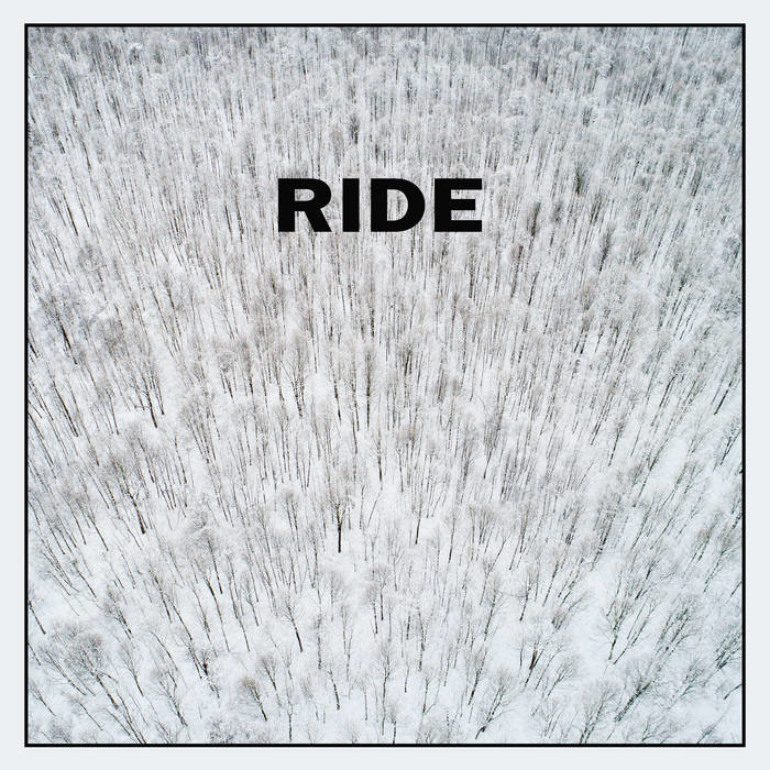

Shoegaze legends reminisce their origins
Ride, as a band, is a historic character in English rock history. Pioneering the genre that is known as shoegaze, and being recognized as one of the most relevant influences in any shoegaze band’s sound, Ride released some of the most influential works on this genre. Mark Gardener, Andy Bell, Laurence Colbert, and Steve Queralt are the members in Ride, a band who left a mark on the music industry but broke up 8 years after their formation. Fortunately, they came back strong in 2015 with an American and European tour.
A bit before the pandemic, in August 2019, they released their previous album This Is Not a Safe Place, and now, they decided to comeback after the pandemic with a compilation album, titled 4 EPs. The title is self explanatory; it is a compilation of some of their earliest work as a band, which traces back to the 90s with the first of the four EPs, a self titled EP released in 1990, called Ride.
Starting off strong, the first song off the first EP Ride, is “Chelsea Girl”. “Chelsea Girl” offers strong guitars and drums, kicking the audience into a good mood from the start. Not only does it sound like the intro of a coming of age movie, it also introduces us to the album and gives us a taste of the sound.
Taking a more rock-heavy sound, “Drive Blind” brings distorted guitars, powerful snares and a groove that lends itself to head-banging. This song establishes and confirms the shoegaze sound of this album, a genre which does not accommodate clear vocals, opting instead for a more obscured sound buried deeper in the mix. “Drive Blind” includes an interesting bridge, which, with its distorted, accelerated sound, makes the audience feel like the song will end like a storm, but Ride surprises their listeners by taking them back to the chorus.
The second EP, titled Play, which includes tracks “Like a Daydream”, “Silver,” “Furthest Sense,” and “Perfect Time,” opts for a brighter sound. Ride implements major riffs in their songs, which fill the songs with energy and a more hopeful sound. “Silver” talks about a break up. Gardner sings about how time healing all wounds is simply not true, and that betrayals hurts worse when there is no remorse. The guitar’s progression and riffs somehow make the song sound old and western, reminiscent of cowboys, but fresher than them as a concept. “Perfect Time” is a delightful song. It is easy to listen to, and proves itself to be a good song to drive fast to. Its happy and energetic sound, however, hides lyrics of inconformity with one’s place in life. It describes a desire of wanting to move on and forget about the past. After all, the only time we ever do get is the present, which is why it’s the only “Perfect Time.”
The third EP, Fall, has a more nostalgic sound. Its first track, “Dreams Burn Down” makes the audience feel melancholic, painful and nostalgic right off the bat. It speaks about not being able to accomplish your dreams and seeing them burn down in front of you. The third track, “Here and now,” is more cheery, but again, the lyrics are darker, talking about being indecisive in big, life-changing decisions, and being in pain due to that indecision. One of its most unexpected sounds, is the harmonica riff in the intro, and at the end of each chorus. The harmonica sounds really pick up the song and give it life and character. Fall‘s last track, “Nowhere” is more monotone, but reuses several elements throughout the EP, such as the harmonica and distorted guitars from “Drive Blind”, to help make it a cohesive sound as the end of the EP. It is also decorated with a very relaxing soundscape of water in a beach, full of waves and seagulls.
The last, but definitely not least of the four EPs is Today Forever, the only of the four EPs to be released in 1991. It starts out with “Unfamiliar,” a track that talks about living life so fast that nothing feels familiar anymore. It is a feeling that happens when someone isn’t appreciating the present, they are living in a mix of the past and future all the time. “Beneath,” is an ode to standing beneath the sun, and doing one of the hardest things: forgiving yourself. “Today,” initiates with nostalgic riffs on the acoustic guitars, as Mark Gardener sings about finally being able to live in the present, accepting the past and bracing for the future, instead of fearing it. “What’s done is done, today,” the lyrics ring. “Today” talks about a struggle with indecision, but no longer due to lack of appreciation for the present, but as an acceptance of the fragility of life and the present. The song ends with guitars that imitate a heart rate monitor and its beeps, reminding us that this is the only life we get, and that we only live once. Thus, it is better to make our lives worth it.
